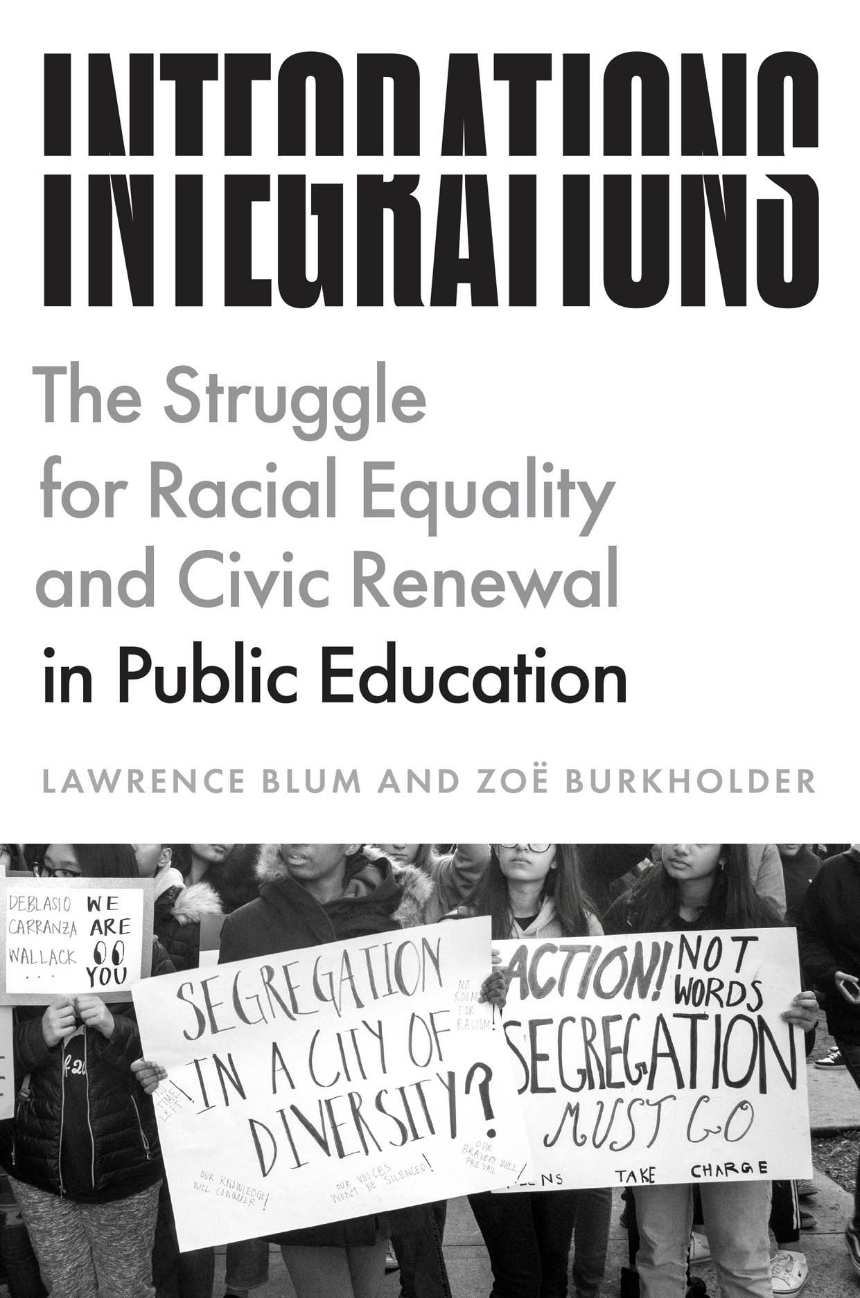Integrations
The Struggle for Racial Equality and Civic Renewal in Public Education
9780226786032
9780226785981
9780226786179
Integrations
The Struggle for Racial Equality and Civic Renewal in Public Education
The promise of a free, high-quality public education is supposed to guarantee every child a shot at the American dream. But our widely segregated schools mean that many children of color do not have access to educational opportunities equal to those of their white peers. In Integrations, historian Zoë Burkholder and philosopher Lawrence Blum investigate what this country’s long history of school segregation means for achieving just and equitable educational opportunities in the United States.
Integrations focuses on multiple marginalized groups in American schooling: African Americans, Native Americans, Latinxs, and Asian Americans. The authors show that in order to grapple with integration in a meaningful way, we must think of integration in the plural, both in its multiple histories and in the many possible definitions of and courses of action for integration. Ultimately, the authors show, integration cannot guarantee educational equality and justice, but it is an essential component of civic education that prepares students for life in our multiracial democracy.
Integrations focuses on multiple marginalized groups in American schooling: African Americans, Native Americans, Latinxs, and Asian Americans. The authors show that in order to grapple with integration in a meaningful way, we must think of integration in the plural, both in its multiple histories and in the many possible definitions of and courses of action for integration. Ultimately, the authors show, integration cannot guarantee educational equality and justice, but it is an essential component of civic education that prepares students for life in our multiracial democracy.
280 pages | 5 halftones | 6 x 9 | © 2021
History and Philosophy of Education Series
Education: History of Education, Philosophy of Education, Pre-School, Elementary and Secondary Education
History: American History
Philosophy: Philosophy of Society
Reviews
Awards
American Philosophical Association: Israel Scheffler Prize in Philosophy of Education
Won
